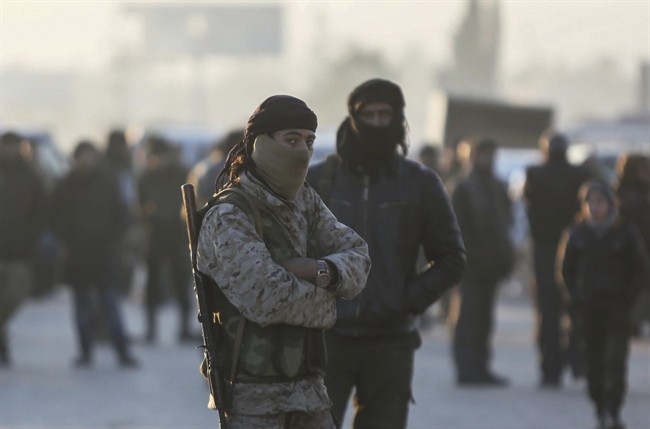BEIRUT – Parts of Syria saw continued fighting Saturday, on the second day of a nationwide cease-fire intended to pave the way for peace talks between the government and the opposition in the new year.

READ MORE: Ceasefire in Syria remains intact despite minor violations
Activists reported pro-government forces were pressing on several fronts against two strategically-located opposition pockets around the capital, Damascus, while Russia’s military deployment to Syria reported twelve cease-fire violations it blamed on rebels Friday. Russia is a key ally of the Syrian government.
Nevertheless, the Russian and Turkish brokered truce held for the most part on a day marked by rain and overcast skies, preserving the possibility for peace talks in the Kazakhstan capital of Astana in the second half of January.
The U.N. Security Council is scheduled to meet at 11 a.m. EST (1600 GMT) to vote on a resolution to endorse the cease-fire and roadmap to peace beginning with a transitional government for the country.
WATCH: From Syria to Brexit, the top international news stories of 2016

The resolution also calls for the “rapid, safe and unhindered” access to deliver humanitarian aid throughout the country.

Get breaking National news
The developments signal the possibility of a diplomatic breakthrough after nearly six years of conflict that has drawn in world powers, displaced half the Syrian population, and killed more than 400,000 people. The parties have defied previous peace initiatives.
It follows months of talks between Ankara and Moscow that culminated in a cease-fire agreement that went into effect Thursday at midnight.
Moscow along with Iran provides crucial military support to Syrian President Bashar Assad, while Turkey has long served as a rear base and source of supplies for the opposition.
READ MORE: Russia calls U.S. move to better arm Syrian rebels a ‘hostile act’
The three powers, Russia, Iran, and Turkey, have agreed to sponsor talks between the government and the opposition in Astana if the truce holds holds.
The Britain-based Syrian Observatory for Human Rights monitoring group said at least two civilians and five militants have been killed in battles over opposition-held Eastern Ghouta and Barada Valley regions around Damascus, since the truce came into effect Thursday at midnight.
The Barada Valley Media Center said Russian and Syrian government aircraft struck villages in the water-rich region for the 10th consecutive day Saturday. The raids have coincided with a severe water shortage in Damascus since Dec. 22. The valley is the region’s primary source of water.
The Syrian military on Friday denied attacking the valley, saying it would not violate the truce brokered by Russia and Turkey.
Meanwhile, Turkey’s state-run Anadolu news agency reported the death of an Islamic State commander in a Turkish airstrike near the north Syrian town of al-Bab on Friday. The truce does not cover operations against the Islamic State or al-Qaida’s Syria affiliate, the Fatah al-Sham front.
Anadolu identified the commander as Abu Ansari. The report could not be independently verified.







Comments